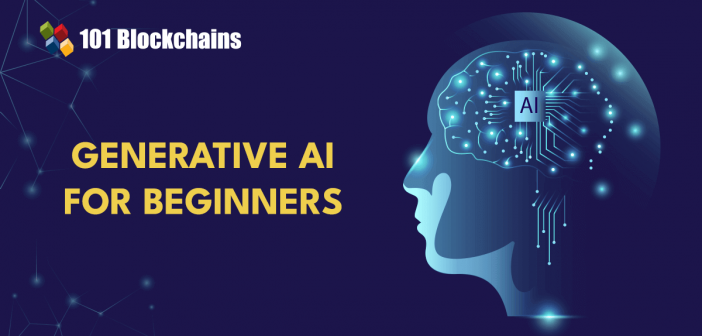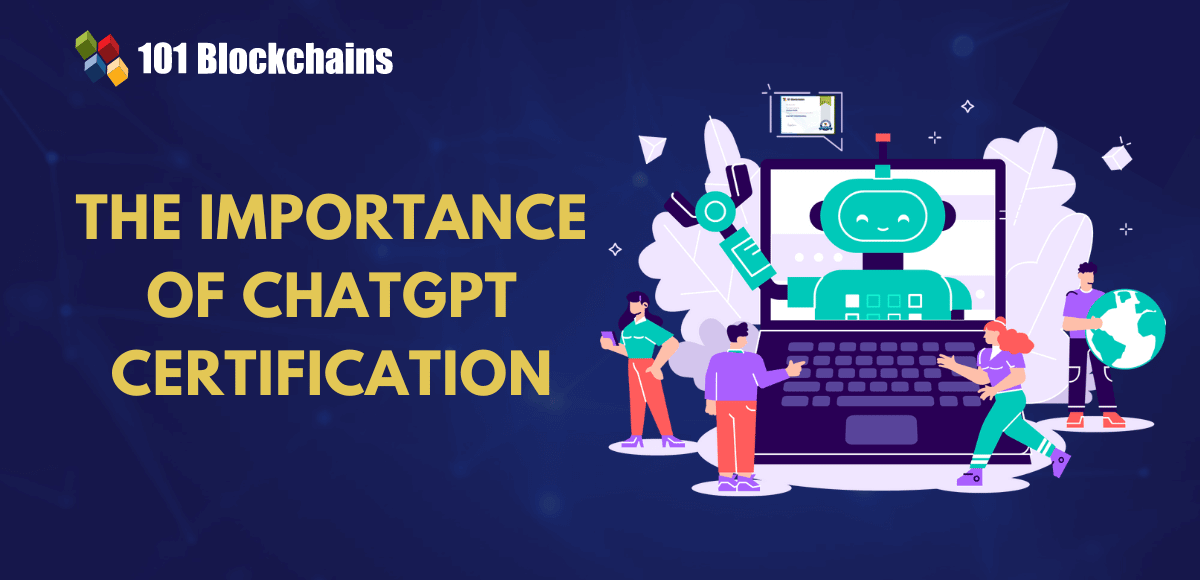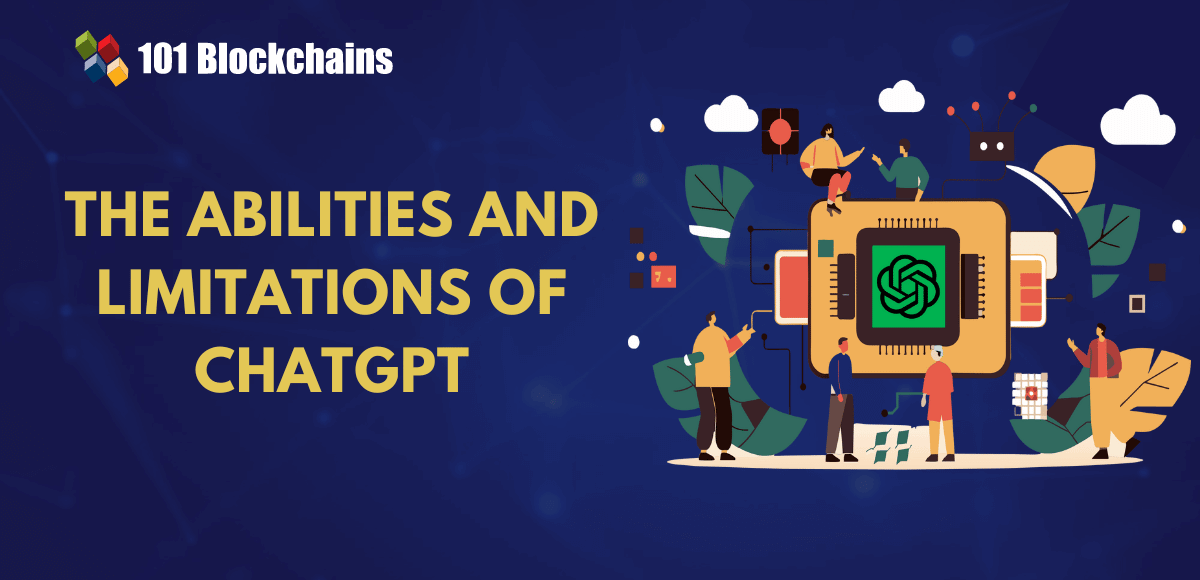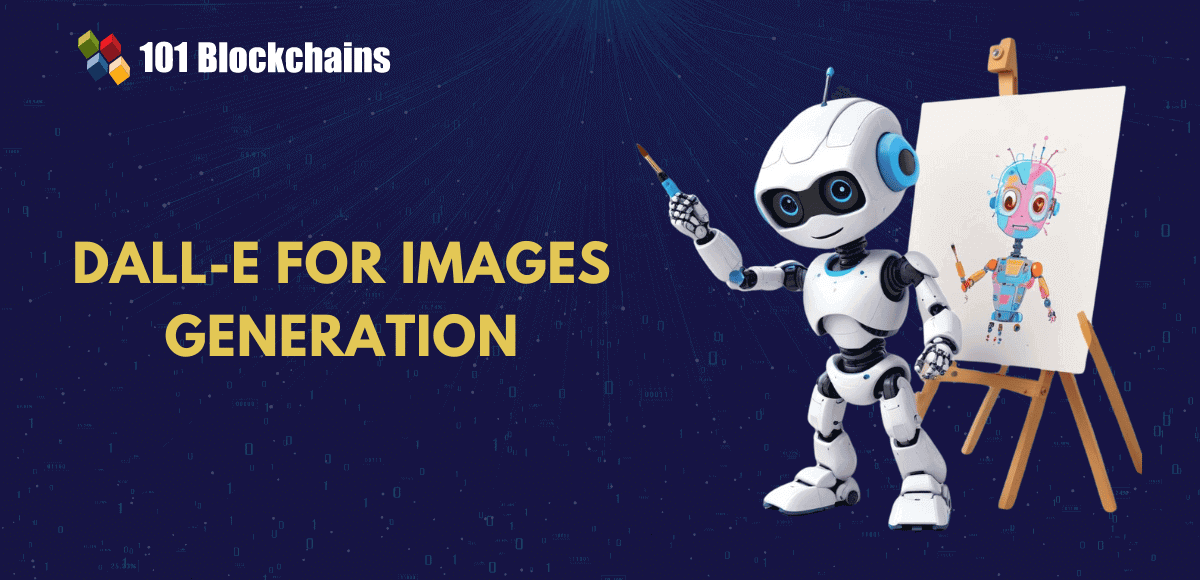The world is at the crossroads of history with a major development in technology in the form of AI. Artificial intelligence has become one of the essential tools for driving productive transformation across different industries. One of the most valuable forms of AI which has encouraged mainstream adoption of artificial intelligence points at generative AI. The best example of generative AI tools is visible in ChatGPT.
More people want to learn generative AI and its potential to transform conventional systems and processes in business. According to Forbes Advisor, almost 97% of business owners believe that ChatGPT would introduce positive changes in their business operations. Generative AI tools such as ChatGPT, Google Gemini, Midjourney and DALL-E 3 have been pushing AI into the mainstream market.
Artificial intelligence is a branch of computer science that focuses on creating systems with the ability to simulate human intelligence. Generative AI is one of the notable variants of artificial intelligence that focuses on generating output in response to inputs or prompts by users. If you are interested in learning AI, then you can begin with generative AI and its examples.
On top of it, you must also find the important resources that can help you become a generative AI expert. Let us discover the benefits of learning generative AI and best practices for specializing in generative AI. You can also discover the ideal resources to build fluency in generative AI.
Identify new ways to leverage the full potential of generative AI in business use cases and become an expert in generative AI technologies with Generative AI Skill Path
Importance of Generative AI
Generative AI has gained significant amount of traction in recent times, particularly among AI enthusiasts. The discussions about choosing an ideal generative AI learning path also invite attention towards the importance of generative AI. The current market capitalization of the global generative AI market is $13.71 billion. The number could increase to more than $22 billion by 2025. Experts have also pointed out that the generative AI market may surge beyond $110 billion in market capitalization by 2030.
Apart from the market growth, the usage of generative AI by people from different generations sheds light on its growing popularity. Salesforce has reported that around 27% of millennials, 29% of Gen Z and 28% of Gen X have been actively using generative AI tools in workplace environments. The interest in finding generative AI resources is not limited to its adoption. Users feel more confident about understanding the complexities of generative AI. As a matter of fact, around 60% of users have confidence in their abilities to become generative AI experts.
The next important highlight in discussions on the importance of generative AI draws the limelight towards reasons for adopting generative AI. Almost 75% of users leverage generative AI for automation of workplace tasks, enhancing productivity and streamlining processes.
On top of it, around 52% of Gen Z users trust generative AI as a valuable tool for making crucial decisions. Therefore, generative AI is gradually emerging as an integral element in decision-making.
Enroll in our Certified ChatGPT Professional Certification Course to master real-world use cases with hands-on training. Gain practical skills, enhance your AI expertise, and unlock the potential of ChatGPT in various professional settings.
Why Should You Learn Generative AI?
The growing usage and adoption of generative AI provide an adequate reason for learning generative AI. With the help of an effective generative AI learning path, you can expand your skill set and use it for professional development. On top of it, learning generative AI from scratch provides different reasons other than learning new skills.
Your skills and knowledge of generative AI can help you with informed decision-making for organizational implementation or career development. Here are some of the benefits of learning generative AI from scratch.
Learning generative AI from scratch helps in building foundational mathematical skills with in-depth understanding of algorithms. It helps in developing comprehensive understanding of the operations and performance of algorithms. Your mathematical skills are useful for learning about intricate algorithms such as probabilistic models, GANs and autoencoders, which are crucial elements for developing generative AI models.
The curiosity of learners about how to start learning artificial intelligence also draws them towards the fundamentals of programming. With fluency in a programming language, learners can develop a better understanding of best practices for the implementation of diverse algorithms. It can offer valuable insights regarding the functions of generative AI models, thereby ensuring efficiency and optimization in model development.
Another important reason to learn generative AI from scratch points to the development of agility to stay updated with emerging trends. Learners can develop readiness to adapt to new developments in the domain of generative AI. It can help learners stay ahead of the curve and maintain relevancy in a continuously evolving technological field.
Enroll now in the ChatGPT Fundamentals Course and dive into the world of prompt engineering with practical demonstrations.
Step-by-Step Process to Learn Generative AI from Scratch
The journey of developing your expertise in generative AI follows an iterative and systematic path. You have to follow multiple steps that are related to each other and that help you develop an in-depth overall understanding of generative AI and practical expertise. Here are the essential steps that you must follow to build your fluency in generative AI.
-
Develop the Essential Prerequisite Skills
The first step recommended in a generative AI learning path focuses on developing important prerequisite skills. The essential skills that you need to learn generative AI include basic mathematics, basic statistics, and dedication to learning. AI depends on mathematical concepts, particularly in the domains of deep learning and machine learning.
You would need a basic understanding of concepts in linear algebra, probability and calculus. On top of it, learners must also prioritize statistics as it helps in the effective interpretation of data and extraction of insights. Some of the important statistics concepts that you would need in the domain of generative AI include distribution, regression, and statistical significance.
-
Familiarize yourself with Fundamentals of Machine Learning
The next step in the journey to develop your expertise in generative AI involves learning about machine learning fundamentals. You must have in-depth fluency in the fundamentals of machine learning to dive deeper into the workings of generative AI. Anyone who wants to learn artificial intelligence must start with the fundamental concepts of ML and the techniques used for developing ML algorithms.
Learners must familiarize themselves with techniques such as supervised and unsupervised learning alongside the intricacies of regression and classification models. In addition, it is also important to learn about the nuances of testing and training data sets for machine learning. You can use online courses on machine learning alongside interactive projects to improve your expertise in machine learning fundamentals.
Want to understand the importance of ethics in AI, ethical frameworks, principles, and challenges? Enroll now in the Ethics Of Artificial Intelligence (AI) Course
-
Enhance Your Skills in Python Programming
Another important requirement for anyone who wants to develop their skills in generative AI points to the Python programming language. Python is an essential prerequisite for learning AI as it is one of the most popular languages in the AI and machine learning landscape. Fluency in Python programming is a must-have requirement for the implementation of machine learning models alongside learning more about generative AI. Therefore, you must develop an in-depth understanding of Python syntax, libraries, and data structures.
Learners must pay special attention to Python libraries such as TensorFlow, NumPy and Pandas and their uses in machine learning. Experts suggest that you use project-based learning and interactive coding platforms to develop practical fluency in Python for generative AI.
-
Dive into Data Science and Deep Learning
The next important step in learning generative AI is developing your expertise in data science and deep learning. Learners must look for generative AI course materials that help them familiarize themselves with data preprocessing, visualization techniques and feature engineering. These techniques are important requirements for effective understanding and management of complex datasets.
You should also explore the concepts of neural networks, recurrent neural networks and convolutional neural networks alongside other deep learning architectures. On top of that, you must also develop a better understanding of their applications in natural language processing, sequential data analysis, and image generation.
Excited to learn the fundamentals of AI applications in business? Enroll now in the AI For Business Course
-
Start with Fundamentals of Generative AI
With all the fundamental skills, you are now ready to take the first step to learning generative AI. You can learn fundamental concepts of generative AI and its diverse applications, such as style transfer, image generation, and text-to-image conversion. Learners must also invest efforts in learning about the important principles underlying the working of Generative Adversarial Networks or GANs and Variational Autoencoders or VAEs. You should also learn about other popular generative AI models and their functions. The best way to strengthen your foundational understanding of generative AI involves the use of research papers, special training courses and online lectures.
-
Try Out Hands-on Exercises and Challenges
Learning the theory of generative AI would only help you get to a certain extent in your career in generative AI. You should focus on how to start learning artificial intelligence with hands-on exercises. The most noticeable advantage of hands-on exercises is the assurance of developing practical expertise.
You must develop generative AI models for generating art, producing music or synthesizing images. It is also important to work with existing datasets and optimize generative AI models to explore intricacies in their behaviour and limitations. You can rely on platforms such as GitHub and Kaggle alongside other open-source repositories to access a collection of datasets and project ideas for implementing and showcasing your skills.
Unlock your potential in Artificial Intelligence with the Certified AI Professional (CAIP)™ Certification. Elevate your career with expert-led training and gain the skills needed to thrive in today’s AI-driven world.
Where Can You Find Resources to Learn Generative AI?
The most important question for beginners interested in learning generative AI revolves around finding the ideal training resources. You can use generative AI resources from reliable platforms such as a learning path by Google or training courses on platforms such as LinkedIn Learning.
You can explore Google’s learning path on generative AI to learn about the fundamentals of generative AI, LLMs, and responsible AI. Subsequently, you can dive deeper into generative AI development topics such as attention mechanisms, transformer models, encoder-decoder architecture and the development of image captioning models.
Final Words
The review of the important steps to learn generative AI reveals that anyone can start learning generative AI from scratch. Most important of all, you don’t have to be an expert in AI to improve your fluency in generative AI. As the world embraces generative AI in different forms, it is important to think of the advantages of learning generative AI.
Interestingly, you can find many platforms that offer trusted and comprehensive training resources on generative AI. Learners should refine their understanding of generative AI fundamentals under expert instructors and develop practical skills in generative AI. Find the best courses on the fundamentals of generative AI right away.






